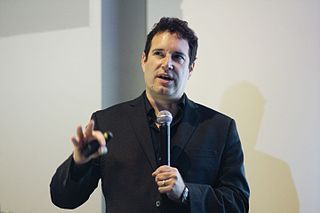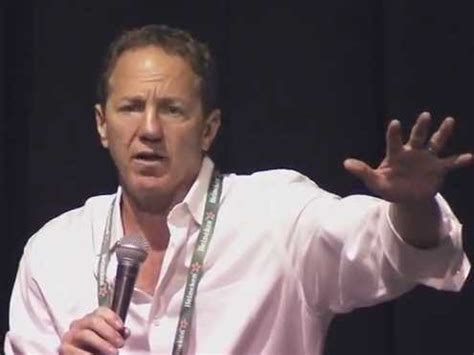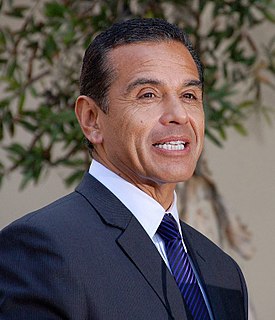Top 380 Printing Quotes & Sayings - Page 6
Explore popular Printing quotes.
Last updated on April 21, 2025.
The greatest threat facing America today
is the disastrous fiscal policies of our own government,
marked by shameless deficit spending and
Federal Reserve currency devaluation.
It is this one-two punch -
Congress spending more than it can tax or borrow,
and the Fed printing money to make up the difference -
that threatens to impoverish us by further
destroying the value of our dollars.
Somebody realized, hey, students are printing dummy ads and dummy news stories, why don't they really print something. So there was the Shortridge Daily Echo, and a hell of a lot of writers have come out of Shortridge on that account. The head writer of the I Love Lucy show, Madelyn Pugh, was a schoolmate of mine. Dan Wakefield. Writing was a perfectly reasonable thing to do.
My take on the whole dot-com bubble was that a lot of people who wanted to make a lot of money got too excited and hyped up the commercial aspects of the Internet prematurely. I think the vision of the Internet as a democratizing medium - as everyone's printing press - is real. We got distracted from that by the mass hallucinations of the bubble.
The only way to make something cheaply today is to have it mass-produced. For example, you wear the same shoes as everyone else. If you had a fabber, you could custom-make shoes that perfectly fit your feet. Three-dimensional printing will help us move away from the mass consumption that is so deeply ingrained in our culture.
I remember how difficult it was to perform certain operations on gelatine prints. A few weeks ago I asked my gelatine printer at Picto, "Can you make just the shadows a little bit brighter?" He gave me a very strange look because in Photoshop you just turn a button, and we're used to that now, but it is totally impossible in gelatine silver printing.
The Internet is the first technology since the printing press which could lower the cost of a great education and, in doing so, make that cost-benefit analysis much easier for most students. It could allow American schools to service twice as many students as they do now, and in ways that are both effective and cost-effective.
Seldom can two such epoch-making events have occurred in successive years as happened then. In 1453 the Turks stormed Constantinople and finally destroyed the Greek Empire, driving out Greek scholars, who carried the knowledge of Greek language and literature to the western world; and in 1454 the first document known to us appeared from the printing press at Mainz.
Steven Pinker says, the invention of printing and the widespread appearance of fiction -
this taught empathy. If you read a novel, you're in someone else's head, in three, five different people's heads. Suddenly, the principle of "Don't do anything to anyone that you wouldn't want done to you" becomes real in people's minds. That's a fantastic achievement if fiction is indeed partly responsible for it. That's a great thing to be a part of. In the end, then, I don't know if writers have legislated, but they have civilized.
What the U.S. does is it continues to print money when the economic situation gets difficult. This is what happened in the last depression during the summer of 2008 when they tried to resolve the economic crisis by printing valueless money. This is the business privilege given to them at the famous conference of Bretton Woods in 1944 when the United States emerged as the superpower after Europe and the rest of the world, mainly Europe, that had collapsed because of the war.
A 300pp novel can easily become a 200pp novel by printing with smaller type; a 100pp screenplay can potentially become a film of between 60-140 minutes in length; a 200pp stage play could be performed in anything from 30 minutes to four hours. For all these media, the script length is agnostic to the final work.
From building robots and video games to coding apps that solve a problem in your community, or 3D printing in fashion tech, it is important that we explore different ways to engage girls in STEAM and also ensure that there are many, and different, women role models that will inspire our girls to pursue STEAM careers.
If my false figures came near to the facts, this happened merely by chance ... These comments are not worth printing. Yet it gives me pleasure to remember how many detours I had to make, along how many walls I had to grope in the darkness of my ignorance until I found the door which lets in the light of the truth ... In such manner did I dream of the truth.
Both instruments are processors of information. Both appeared when nothing quite like them had existed before, and both began to make their effects felt immediately (a situation that isn't invariable with new technology). Both devices were less the result of a single breakthrough than of an evolving set of technologies. Like the computer, the printing press had no one certain inventor; it was a technology whose time had come.
The bank's product is debt, because the banks want to make sure that they can get paid for the debt. But ultimately the only party that can pay the debt is the government, because it runs the printing presses. So the debts ultimately either are paid by the government, or they're paid by a huge transfer of property from debtors to creditors - or, the debts are written off.
The whole switch from film to digital has changed some of the ways I use color and the juxtaposition of light and dark. It's getting better with digital, the separation's gotten better, but I still feel like it's really flatter than film, so I do a lot of screening and subtle textural printing and painting on clothes for film to get it not to look flat.
There are no checks and balances if the gov is wrong. If a private entrepreneur makes a mistake, he goes bankrupt, the losses are cut; if he bets wrong, he loses; if the gov bets wrong, they just get bigger, they just appropriate more money. It's a bottomless pit, because they either get it from the tax payers or run it off a printing press.
At Facebook, we're inspired by technologies that have revolutionized how people spread and consume information. We often talk about inventions like the printing press and the television - by simply making communication more efficient, they led to a complete transformation of many important parts of society. They gave more people a voice. They encouraged progress. They changed the way society was organized. They brought us closer together.
For in the absence of debate unrestricted utterance leads to the degradation of opinion. By a kind of Greshams law the more rational is overcome by the less rational, and the opinions that will prevail will be those which are held most ardently by those with the most passionate will. For that reason the freedom to speak can never be maintained merely by objecting to interference with the liberty of the press, of printing, of broadcasting, of the screen. It can be maintained only by promoting debate.
Desktop publishing was a big innovation that meant small groups or even poor societies could do their own publication without the capital investment in a major printing press. That's a big difference. Same is true of more advanced technologies - it can offer plenty of liberatory possibilities - can - but whether it does or not or whether it serves for coercion depends on socioeconomic decisions.
My specialty as a collector is books that almost have value. When I love a book, I don't buy the first edition, because those have become incredibly expensive. But I might buy a beat-up copy of the second edition, third printing, which looks almost exactly the same as the first edition except that a couple of typos have been fixed.
Like gold, U.S. dollars have value only to the extent that they are strictly limited in supply. But the U.S. government has a technology, called a printing press (or, today, its electronic equivalent), that allows it to produce as many U.S. dollars as it wishes at essentially no cost. By increasing the number of U.S. dollars in circulation, or even by credibly threatening to do so, the U.S. government can also reduce the value of a dollar in terms of goods and services, which is equivalent to raising the prices in dollars of those goods and services.
I've always taken apart calculators and anything I can get my hands on when I was younger. When I was around 12 - like, 6th grade - my parents always had around Mac computers because my mom is a teacher. So I'd always be playing around with all the crazy applications and making banners and printing things out and always into graphic design.
Fannie and Freddie made two-thirds of all subprime mortgages. That is not a free market institution. That entity, along with the Fed printing too much money back in '03 and '04, caused the housing collapse. So we need to take free markets seriously. That means we have to put an end to all these tax credits and tax deductions and loopholes.
Moderate giftedness has been made worthless by the printing press and radio and television and satellites and all that. A moderately gifted person who would have been a community treasure a thousand years ago has to give up, has to go into some other line of work, since modern communications put him or her into daily competition with nothing but world's champions.
It may be that we exist and cease to exist in alternations, like the minute dots in some forms of toned printing or the succession of pictures on a cinema film. It may be that reality is an illusion of movement in an eternal, static, multidimensional universe. We may be only a story written on the ground of the inconceivable; the pattern on a rug beneath the feet of the incomprehensible.
The stock market in Japan was half the world market and where has the Japan economy gone since the 1990s? Nowhere. They've been struggling for two decades in the aftermath of a massive bubble that's collapsed. They've tried to work their way out of it by printing even more money and it hasn't worked. Now, I'm saying this is what all the central banks are doing. There is no honest interest rate in the world today.
The day that I spearheaded the passage of America Fast Forward... the newspaper of record did not put it in the newspaper; what they put was my breakup with my ex-girlfriend. I took umbrage with that. A great newspaper ought to be printing things that people care about, issues that people care about.
I believe in taking care of myself and teaching other people who want to learn. I don't believe in just printing money and giving money. I'm willing to teach those who are willing to learn. If you're not willing to learn, then go vote for Obama. I'm not Republican or Democrat, so don't get me wrong.
Congress actually authorized the printing and payment for a Bible. That illustrates the high regard that the Bible was held in early American society. We see biblical ideas woven into the founding documents of our country like the Declaration of Independence and the Constitution. The Declaration of Independence explicity states "that all men are created equal, that they are endowed by their Creator with certain unalienable Rights..." This is a biblical idea stemming from the dignity of all people - Psalm 139:14 - we are fearfully and wonderfully made.
If I were rich I would have many books, and I would pamper myself with bindings bright to the eye and soft to the touch, paper generously opaque, and type such as men designed when printing was very young. I would dress my gods in leather and gold, and burn candles of worship before them at night, and string their names like beads on a string.
Doing research for 'Penumbra,' I read quite a bit about the early history of printing, and the more I did, the more it sounded like... the Internet today. There was crazy competition and upheaval; there were constant arguments about new techniques, new materials, new machines; and, of course, there were fortunes to be made.
The fact that we're at a point today where anybody, anywhere can put a comic book together and get it in front of the entire planet without spending a dime on printing and distribution - that's the good thing, and I think that's what's going to save [the comics industry]. These young people who have nothing to do with the industry we're in, just going out there and doing their own work and putting it out there, letting people respond to it.
If photography is allowed to stand in for art in some of its functions it will soon supplant or corrupt it completely thanks to the natural support it will find in the stupidity of the multitude. It must return to its real task, which is to be the servant of the sciences and the arts, but the very humble servant, like printing and shorthand which have neither created nor supplanted literature.
Things like social media and the Internet, of course, it's not going away. There is no cure for it. And this shouldn't be just like there shouldn't be, you know - it would have been a tragedy if there was a cure for the printing press. I think it's just that it's an amazing tool that we as a - as an animal are just getting to grips with because it's like we've grown a new ultra powerful limb and we're learning how to use it.
Church wealth are moving into everything-gas stations, banks, television stations, supermarket chains, hotels, steel mills, resort areas, farms, wine factories, warehouses, bottling works, printing plants, schools, theaters-everything you could conceivably think of that has nothing to do with religion, they are moving into big. They're even coming in as stockholders in the big oil companies, and the Bank of America is almost entirely owned by the Catholic Church.
A global society is coming into being, a global society that is made out of information that was not intended to be ours, but is ours, by the mistaken invention of computers and the printing press, information is power, and information has spilled by the clumsy hands of the dominator culture so that the information is everywhere, never before has the situation been so fluid, we might be able to finally have a crack at this
Our planning system was dynamite when we first put it in. The thinking was fresh; the form mattered little. It was idea oriented. We then hired a head of planning, and he hired two vice presidents, and then he hired a planner; and the books got thicker, and the printing more sophisticated, and the covers got harder, and the drawings got better.
With QE3, we are essentially being bought out with our own money...and unemployment is being used to facilitate this process in a very clever manner. Monetary inflation is currently being offset by labor deflation. The way you avoid collapse is by printing money and stealing assets. The way you avoid inflation is with labor deflation.
There is more Bible buying, Bible selling, Bible printing and Bible distributing than ever before in our nation. We see Bibles in every bookstore - Bibles of every size, price and style. There are Bibles in almost every house in the land. But all this time I fear we are in danger of forgetting that to HAVE the Bible is one thing, and to READ it quite another.
Communication media enabled collective action on new scales, at new rates, among new groups of people, multiplied the power available to civilizations and enabled new forms of social interaction. The alphabet enabled empire and monotheism, the printing press enabled science and revolution, the telephone enabled bureaucracy and globalization, the internet enabled virtual communities and electronic markets, the mobile telephone enabled smart mobs and tribes of info-nomads.
The solution was eventually found by Johannes Gutenberg, who made the breakthrough that finally established printing as the communication technology of the future. Similar ideas may have been under development around the same time in Prague and Haarlem. But in business, the key question is not about who else is in the race, it's about who gets there first. Johannes Gutenberg was the first to make the new technology work, ensuring his place in any history of the human race.
The great intellectual tradition that comes down to us from the past was never interrupted or lost through such trifles as the sack of Rome, the triumph of Attila, or all the barbarian invasions of the Dark Ages. It was lost after the introduction of printing, the discovery of America, the founding of the Royal Society, and all the enlightenment of the Renaissance and the modern world. It was there, if anywhere, that there was lost or impatiently snapped the long thin delicate thread that had descended from distant antiquity; the thread of that unusual human hobby: the habit of thinking.
While social media skills were once a 'nice-to-have,' accreditation in the space is becoming a requirement for many of these job titles. Hiring managers and job seekers are realizing that printing stacks of resumes is turning passe, and social media is rising as the new way of generating real-time networking opportunities.
Think for a moment of the great agents and engines of our civilization, and then think what shadowy ideas they all once were. The wheels of the steamship turned as swiftly as they do now, but as silent and unsubstantial as the motions of the inventor's thought; and in the noiseless loom of his meditation were woven the sinews of the printing-press, whose thunder shakes the world.
In the North, neither greenbacks, taxes, nor war bonds were enough to finance the war. So a national banking system was created to convert government bonds into fiat money, and the people lost over half of their monetary assets to the hidden tax of inflation. In the South, printing presses accomplished the same effect, and the monetary loss was total.
My very first venture was a national student magazine to try to campaign against the [Vietnam] War. And so I wanted to be an editor. I wanted to bring the magazine out. And in order for the magazine to survive I had to worry about the printing and the paper manufacturing and the distribution. And, you know, I had to try to, at the end of the year, have more money coming in than going out.
New media may at first appear as mere codes of transmission for older achievement and established patterns of thought. But nobody could make the mistake of supposing that phonetic writing merely made it possible for the Greeks to set down in visual order what they had though and known before writing. In the same way printing made literature possible. It did not merely encode literature.
Look at the history of the printing press, when this was invented what sort of consequences this had. Or industrialization, what sort of consequences that had. Very often, it led to enormous transformational processes within individual societies. And it took awhile until societies learned how to find the right kind of policies to contain this and manage and steer this.
The funny thing is, nationalism only could have come about in Europe after the invention of printing. You could have this thing that was a book in a vernacular language, and you could imagine there were other readers of this book who you couldn't see, but they were a theoretical union of readers who all use the same language. That is kind of a prerequisite for a national fantasy. You need that thing, and it's a strange thing.
I think in daily newspapers, the way comic strips are treated, it's as if newspaper publishers are going out of their way to kill the medium. They're printing the comics so small that most strips are just talking heads, and if you look back at the glory days of comic strips, you can see that they were showcases for some of the best pop art ever to come out.
America really started to die when the Federal Reserve was founded, and it really started to die in 1971 when the gold backing was taken away from the dollar, and this currency with Ben Bernanke just printing up or counterfeiting as much money as he wants and destroying the economy is really destroying the economy.
Who could quarrel with Clark Gable? We got on well. Whenever anyone on the set was tired or depressed, it was Gable who cheered that person up. Then the newspapers began printing the story that Gable and I were not getting on. This was so ridiculous it served only as a joke. From the time on the standard greeting between Clark and myself became, 'How are you not getting on today?'
They've been screaming about the death of literacy for years, but I think TV is the Gutenberg [printing] press. I think TV is the only thing that keeps us vaguely in democracy even if it's in the hands of the corporate culture. If you're an artist you write in your time. Moaning about the fact that maybe people read more books a hundred years ago - that's not true. I think the same percentage has always read.
We live in a society whose whole policy is to excite every nerve in the human body and keep it at the highest pitch of artificial tension, to strain every human desire to the limit and to create as many new desires and synthetic passions as possible, in order to cater to them with the products of our factories and printing presses and movie studios and all the rest.
The most refined skills of color printing, the intricate techniques of wide-angle photography, provide us pictures of trivia bigger and more real than life. We forget that we see trivia and notice only that the reproduction is so good. Man fulfils his dream and by photographic magic produces a precise image of the Grand Canyon. The result is not that he adores nature or beauty the more. Instead he adores his camera - and himself.
The time will come, and probably during 2009, that the only way the U.S. will be able to fund its deficits is to create money by printing it. The Treasury will have to sell bonds, and, in the absence of foreign buyers, the Fed will have to print the money to buy them. The consequence will be runaway inflation, increasing interest rates, recession, and inevitable tax increases on all Americans.
Surrealism will usher you into death, which is a secret society. It will glove your hand, burying therein the profound M with which the word Memory begins. Do not forget to make proper arrangements for your last will and testament: speaking personally, I ask that I be taken to the cemetery in a moving van. May my friends destroy every last copy of the printing of the Speech concerning the Modicum of Reality.


























































